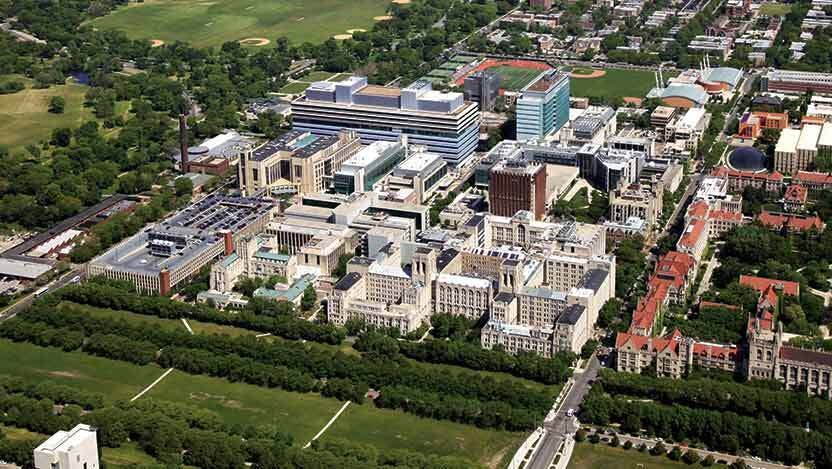Two UChicago Biological Sciences Division faculty named 2020 AAAS Fellows

Two University of Chicago Biological Sciences Division faculty members have been named 2020 Fellows of the American Association for Advancement of Science (AAAS).
AAAS Fellowships recognize important contributions to STEM disciplines, including pioneering research, leadership within the field, teaching and mentoring, collaborative approaches and advancing the public understanding of science. They are among 489 fellows elected this year by their peers, and among five honorees at UChicago.
Anita Chong, PhD
Anita Chong, PhD, was named for “distinguished and pioneering contributions to the immunology related to organ transplantation, tolerance and immuno-suppressive drug action.” When she was first contacted by the AAAS about the Fellowship, she was so surprised that she thought it was a phishing email.
Her research was first inspired by an interest in parasitic diseases when she was a young woman in Malaysia; she shifted her focus to immunology and eventually transplantation immunology when she came to the United States. She studies the immunology of how the body tolerates organ transplants, with a particular interest in understanding how infections, previous rejection or pregnancies affect tolerance.
“I am most interested in work that solves problems faced by clinicians,” Chong said. “It’s surprising how many people have relatives or friends who have received an organ transplant, and people are always so happy to learn that we are working on ways to induce tolerance so recipients don’t have to take drugs. What I do is very applicable — it’s easy for people to relate.”
Recent major projects have included the development of immunosuppressive agents for use in transplantation that are now being explored as antiviral treatments for COVID-19; long-term collaborative work geared at understanding how microbial communities within certain difficult-to-transplant organs (like the lung or intestine) contribute to rejection; and how pregnancy sensitizes the female body to transplantation.
Chong is a professor in the Department of Surgery.
Rima McLeod, MD
Rima McLeod, MD, was recognized for “distinguished contributions to understanding the medical consequences of Toxoplasma gondii infection, the molecular mechanisms contributing to these consequences, and potential treatments.”
She is an internationally recognized expert in toxoplasmosis, a disease caused by Toxoplasma gondii, one of the world’s most common parasites. She first became interested in the T. gondii when she was a fellow at Stanford University, where she was fascinated by the parasite’s complex biology.
“T. gondii has many of the properties of a virus, but it’s a eukaryotic organism,” McLeod said. “As I learned more about it, I was also taking care of patients, and it became clear how understudied the disease is. This is a problem for more than just babies — this parasite is a permanent resident in the brains of around 2 billion people worldwide. Until recently, it wasn’t possible to prevent and develop methods to eliminate that.”
She credits her collaborations with colleagues, trainees and fellows with contributing substantially to her work. “This truly is a neglected disease,” McLeod said. “Most people don’t know about it, and it’s not a priority for people to understand how it can harm them, but it’s so important that we find a way to understand all the consequences of the infection and to effectively prevent, and treat and eliminate this parasite in people who are suffering from it.”
McLeod is a professor in the Departments of Ophthalmology and Visual Science and Pediatrics.
The American Association for the Advancement of Science (AAAS) is the world’s largest general scientific society and publisher of the journal Science. Founded in 1848, AAAS is open to all and fulfills its mission to “advance science and serve society” through initiatives in science policy, international programs, science education, public engagement, and more. For additional information about AAAS, visit www.aaas.org.
